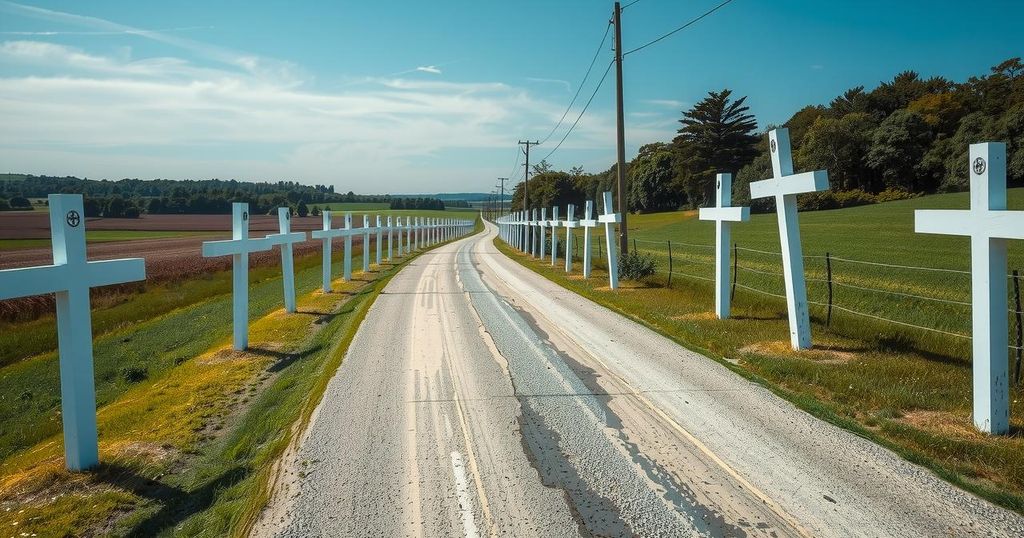South Africa’s Police Minister Responds to Trump’s Genocide Claims

South Africa’s Police Minister Senzo Mchunu criticized President Trump’s claims about white farmer genocide in South Africa, asserting they stem from a misleading video. The crosses shown in the video marked a protest, not graves. Mchunu emphasized the need to counter misinformation regarding farm violence, which impacts both white and black farmers. Trump’s allegations have strained U.S.-South Africa relations, prompting calls for clarification and understanding between the nations.
South African police chief Senzo Mchunu openly criticized U.S. President Donald Trump’s recent claims about genocide against white farmers in his country. Mchunu asserts that Trump’s assertion was based on a misleading video shown during a meeting with South African President Cyril Ramaphosa in the Oval Office. The video depicted white crosses along a rural road and Trump referred to them as burial sites for over 1,000 white farmers, a claim Mchunu firmly rejected as untrue.
According to Mchunu, the white crosses were temporary memorials erected in 2020, not burial sites. They were placed during a funeral procession for a couple who were victims of a farm robbery, illustrating a wider issue of violence against all farmers in South Africa. He urged that the narrative Trump pushed does not represent the reality of crime in South Africa,
The tensions around farm killings in South Africa have been ongoing, but they account for only a small fraction of the nation’s overall homicide rate. Both black and white farmers face violence, which the government has condemned. Although white individuals comprise roughly 7% of the population, they still enjoy a significantly better quality of life relative to the majority black population, which reflects on the ongoing disparities 30 years after apartheid.
Mchunu expressed disappointment over how Trump’s claims could disrupt understanding between the two nations. He stated, “They are not graves. They don’t represent graves,” in relation to the video’s content. Mchunu concluded by emphasizing that while they hold respect for the U.S. president, they cannot condone his narrative around genocide.
Notably, Trump’s allegations have been met with strong denials from South African officials, labeling them as rooted in misinformation. Ramaphosa sought the meeting, hoping to alter Trump’s misconceptions about the nation.
In February, Trump signed an executive order ceasing U.S. financial assistance to South Africa, claiming it was mistreating white Afrikaner farmers. He accused the Ramaphosa administration of fostering violence against racial minorities and criticized its foreign policy stance towards Israel and Palestine.
The issue is convoluted further by the historical and socio-political context of land ownership in South Africa and its implications for racial relations today. As tensions continue, the South African government is working to clarify these misconceptions in efforts to maintain diplomatic relations with the U.S.
President Trump’s claims regarding genocide against white farmers in South Africa have drawn sharp rebuke from South African police minister Senzo Mchunu. The narrative stemming from a video shown in a White House meeting has led to misunderstandings, although the South African government has stressed this is misinformation. While violence against farmers is a concern, it’s pivotal to understand the broader context of crime in South Africa, which affects all racial groups, and the complexities of land ownership and racial dynamics post-apartheid.
Original Source: apnews.com







